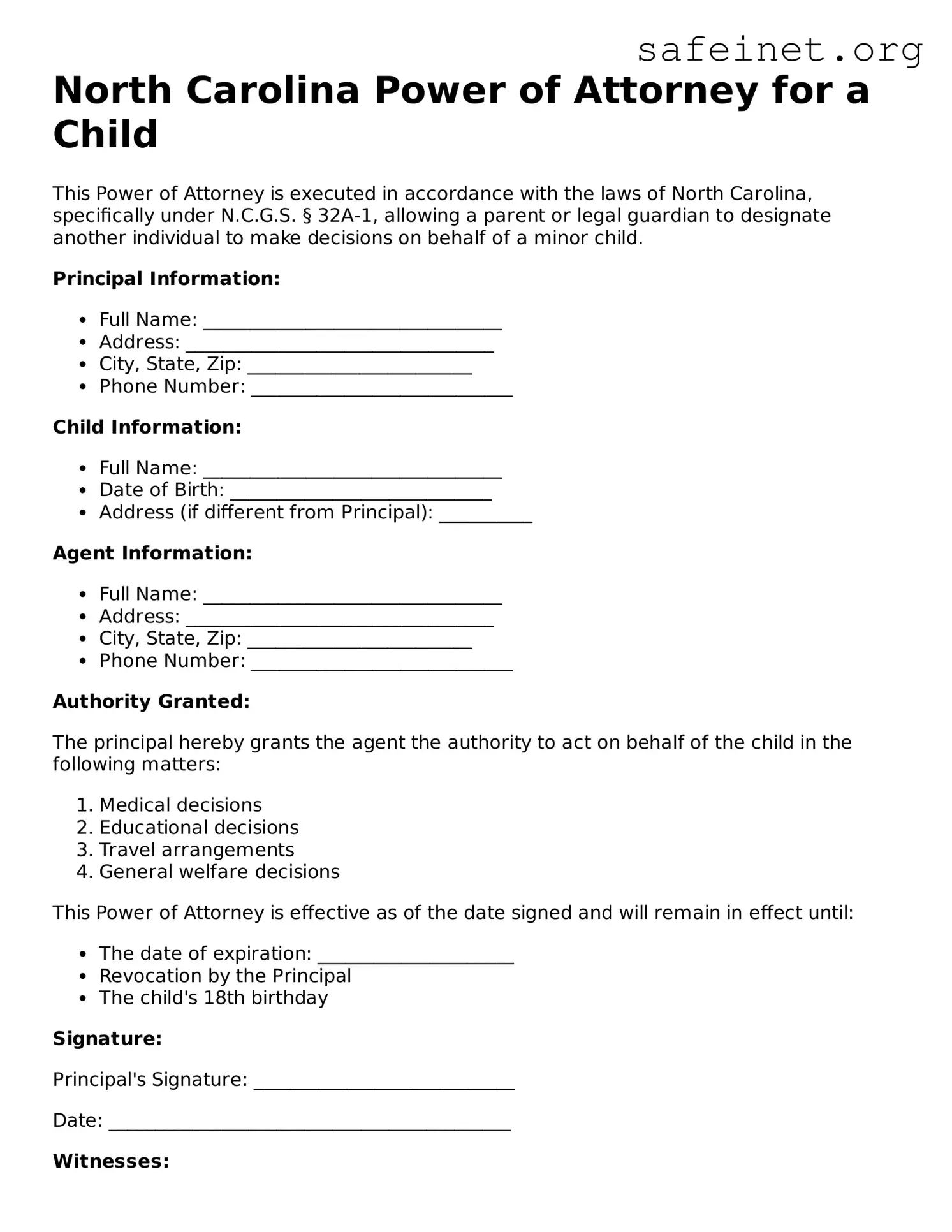What is the North Carolina Power of Attorney for a Child form?
This form allows a parent or legal guardian to grant another person the authority to make decisions on behalf of their child. It is often used when parents need someone to care for their child temporarily, such as during extended travel or in emergencies.
Who can create a Power of Attorney for a Child in North Carolina?
Any parent or legal guardian of a child can create this document. The person granting the power (the principal) must be the child's parent or legal guardian and of sound mind when signing the form.
Who can be appointed as an agent?
An agent can be a trusted family member, friend, or another responsible adult. The person chosen should be someone who understands the responsibilities involved and is willing to act in the best interest of the child.
What decisions can the agent make?
The agent can make various decisions regarding the child's care, including medical needs, education, and daily activities. However, the specific powers granted should be clearly defined in the form itself to avoid ambiguity.
Is the North Carolina Power of Attorney for a Child form temporary or permanent?
This form is usually temporary. It typically specifies a start and end date, or it remains valid until revoked by the parent or legal guardian. It’s essential to communicate the duration clearly in the document.
How do I revoke a Power of Attorney for a Child?
To revoke the power, the parent or legal guardian must create a written document stating the revocation. This document should be signed and ideally delivered to the agent and anyone else who received a copy of the original form.
Do I need to have the Power of Attorney for a Child notarized?
Yes, having the document notarized is recommended. A notary public verifies the identities of those signing the form and ensures that the signing was done voluntarily. This adds an extra layer of legal authenticity.
What should I do if I lose the Power of Attorney for a Child form?
If you lose the form, it's a good idea to create a new one. If the original has already been distributed, notify the agent and anyone else who received it, then clarify that it’s no longer in effect. This helps avoid any confusion.
Can I include specific instructions in the Power of Attorney for a Child?
Yes, you can include specific instructions. It is beneficial to detail any specific requirements or preferences regarding the child’s care, education, or health. Clear instructions help the agent make decisions aligned with your wishes.
Is a Power of Attorney for a Child the same as a guardianship?
No, a Power of Attorney for a Child is not the same as guardianship. A Power of Attorney grants temporary decision-making authority, while guardianship is a legal status that gives a person permanent authority over a child’s welfare and decisions.
